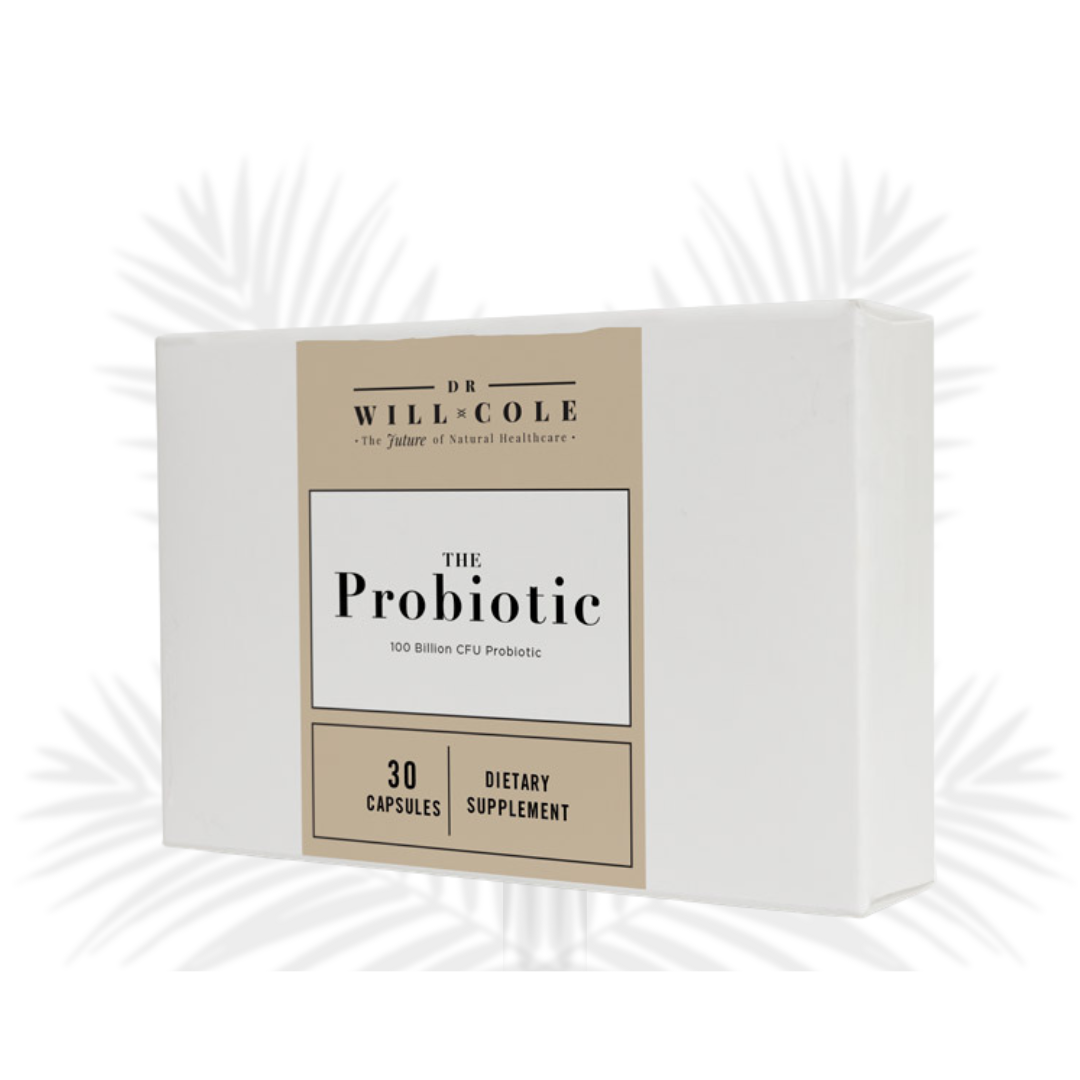What Is Eczema? How To Break Free From This Inflammatory Skin Problem

Do you deal with dry, inflamed, flaky, irritated skin? If so, you’re not alone. A staggering 35 million people (1) - approximately 30 percent (2) of the total population - suffer from the frustrating dry skin condition known as eczema in the U.S. alone and millions more are somewhere on the larger skin-inflammation spectrum. The sad part is, a huge portion of those people have no idea what the underlying causes are or how to manage this often severe skin condition.
I’m guessing by now you’ve tried several ointments, creams, and home remedies; or maybe this is the first you’re even noticing your skin looking and feeling irritated. Here’s a practical, functional medicine guide to managing eczema and identifying its root causes.
ARTICLE CONTINUES BELOW
Make Your Life a Cleanse
SUBSCRIBER-ONLY GUIDES FOR GUT HEALTH, VIBRANT ENERGY, HEALTHY FOOD & CLEAN ALCOHOL
Get FREE access to these + giveaways, recipes, & discount codes in personal emails from Dr. Will Cole.
What is Eczema?
Eczema, also known as atopic dermatitis, is a dry skin condition that causes the skin to be red and itchy. Eczema can be long-lasting (3) and can periodically flare up depending on the weather or your surroundings. Most often symptoms start to occur around the age of 5, but since every case is different, others can notice their eczema triggered in adulthood. To overcome this issue, identifying the root cause is the first step.
Eczema symptoms
The symptoms of eczema can vary from person-to-person and may include:
- Dry, sensitive skin
- Severe itching
- Redness and inflammation
- Thickened, scaly skin
- Small, raised bumps that may leak fluid and crust over when scratched
- Cracked or rough patches of skin
- Discoloration or changes in skin pigmentation
The severity of these symptoms can also vary depending on individual triggers that can further irritate and flare-up this condition.
Eczema causes and triggers
For children and adults, eczema can be triggered by different things. While there is some overlap, for the most part eczema in children has different causes than eczema in adults. Possible eczema causes and triggers for children can be:
- Bacteria
- Dry skin
- Food sensitivities
- Genetic predispositions
- Scratching
- Climate
- Teething and lack of sleep
- Sweat
- Underlying gut problems
- Environmental stressors
When you see everyday materials and things like saliva becoming an issue for your child’s skin, take note of the foods and allergens that trigger the irritation. Studies (4) show that cotton is less likely to irritate the skin, compared to harsher materials like polyester or wool. Paying attention to the smaller details like what detergent you wash with can make all the difference.
For adults, possible eczema causes and triggers can include:
- Food sensitivities
- Climate
- Anxiety & stress
- Detergents
- Scented products
- Allergies
- Exercise
- Hormonal changes
- Skin infections & saliva
- Decreased level of lipids
- Increased bacteria on body
- Underlying gut issue
- Environmental stressors
The key point in managing eczema is more than just applying the right creams and ointments, but also to find out what your particular triggers and causes are. At my functional medicine telehealth clinic we prioritize uncovering the root drivers of each client, offering consultations via webcam worldwide.
Natural remedies for eczema
1. Probiotics
As a functional medicine practitioner who consults people around the world I’ve seen enough cases to know that more often than not, inflammation is the undercurrent to most health issues in the body. When it comes to skin inflammation, L. rhamnosus (5) is a probiotic colony that is being explored for skin health, as it helps manage gut and immune health. This probiotic as well as L. plantarum help produce more filaggrin, a protective barrier for the skin, lower the chances of extreme allergies, and reduce severity in skin conditions. When using probiotics like these, you can decrease the likelihood of living with extreme eczema.
2. Natural ointments and oils
With Atopic Dermatitis, it’s important to keep your skin moisturized (6) at all times since people with eczema have a weaker skin barrier and skin microbiome. With this damaged protective barrier, the skin is vulnerable to airborne allergens and irritating chemicals from materials. When this happens, it’s a lot more difficult for the skin to retain moisture, causing the skin to be dryer and more irritated. Products like ointments, moisturizers, and oils are best when it comes to applicable treatments and natural ingredients that will repair the protective barrier.
Borage Oil
Borage Oil is not known to prevent eczema altogether, but it can help those with mild cases and want to take a natural route. High in fatty acids like gamma and linolenic acid, Borage Oil (7) can help increase and maintain flaggarin in the body.
Coconut Oil
Virgin coconut oil (8) can decrease the inflammation levels in the skin and preserve the protective skin barrier. This kitchen staple was shown to improve mild cases of eczema in just 8 weeks when it was applied daily. Coconut oil moisturizes the skin, working to prevent the issue of dry skin early on.
Sunflower Oil
Sunflower Oil enhances hydration in your skin, and can even calm down the extreme side effects of eczema. When applied daily, studies have shown that sunflower (9) oil can repair damaged skin and lock in moisture.
Hemp Seed Oil
Hemp seed (10) oil doubles up on my favorite kind of fatty acids, Omega-3 and Omega-6. These are often found in foods like fatty fish, shellfish, and plants. Fatty oils that seal in moisture have shown improvements in itchiness, redness, and dryness in skin.
Aloe Vera
With aloe vera (11) being a natural moisturizer, any cream, oil, or ointment made with Aloe Vera will improve the overall immunity and dryness of your skin, while reducing the likelihood of wrinkles. However, I do recommend choosing quality aloe vera products that avoid any harsh and harmful ingredients that can irritate the skin.
3. Light Therapy
Low doses of LED light and blue light therapy have been shown (12) to help lower symptom severity. Blue light (13) can help with inflammation, immune response, and infectious skin bacteria in eczema cases.
4. Intermittent Fasting
Intermittent fasting helps identify where your gut health is really at, and believe it or not it can be beneficial for inflammatory skin conditions. In my book, Intuitive Fasting, I talk about how chronic inflammation is the common issue beneath most major and minor diseases and dysfunctions in the body. A key benefit of intermittent fasting is that inflammation levels lower and the gut microbiome balances significantly, which can help improve eczema as these are both underlying triggers of this condition.
5. Elimination diet
Oftentimes, food allergies and sensitivities are directly linked to extreme cases of eczema or eczema flare ups. Through an elimination diet you can slowly cut out and reintroduce certain foods to see if that is one of the root causes of your irritated skin. In my book, The Inflammation Spectrum, I talk about this at length and walk you through how to uncover what foods trigger inflammation for you and what foods your body loves.
6. Colloidal Oatmeal Baths
Oat in its natural state is known to help improve and soothe dryness, itchiness, rashes and other severe symptoms of eczema. Studies show (14) that colloidal extracts of oat, often a powder form, also have anti-inflammatory properties.
Seeking help from a functional medicine expert
Eczema can be extremely uncomfortable and frustrating but thankfully there are many tools, protocols, and therapies in the functional medicine toolbox that have been clinically shown to help improve and reduce skin flares like eczema. In my telehealth functional medicine clinic, we specialize in identifying the underlying eczema triggers behind your symptoms in order to further personalize these solutions and achieve clear, hydrated skin. If you are currently struggling with eczema or another chronic skin problem, schedule a telehealth consultation today to learn more about how we can help you with functional medicine.
As one of the first functional medicine telehealth clinics in the world, we provide webcam health consultations for people around the globe.
Photo: unsplash.com
Start Your Health Journey Today
FUNCTIONAL MEDICINE CONSULTATIONS FOR PEOPLE AROUND THE WORLD
References:
- Binghamton University. "Biomedical researchers get closer to why eczema happens." ScienceDaily. ScienceDaily, 24 June 2020. <www.sciencedaily.com/releases/2020/06/200624100053.htm>.
- National Institute of Allergy and Infectious Diseases "Eczema (Atopic Dermatitis)" Accessed December 2023. https://www.niaid.nih.gov/diseases-conditions/eczema-atopic-dermatitis
- Mayo Clinic "Atopic dermatitis (eczema)" Accessed December 2023. https://www.mayoclinic.org/diseases-conditions/atopic-dermatitis-eczema/symptoms-causes/syc-20353273
- National Collaborating Centre for Women's and Children's Health (UK). Atopic Eczema in Children: Management of Atopic Eczema in Children from Birth up to the Age of 12 Years. London: RCOG Press; 2007 Dec. (NICE Clinical Guidelines, No. 57.) 6, Identification and management of trigger factors. Available from: https://www.ncbi.nlm.nih.gov/books/NBK49357/
- Segers, Marijke E, and Sarah Lebeer. “Towards a better understanding of Lactobacillus rhamnosus GG--host interactions.” Microbial cell factories vol. 13 Suppl 1,Suppl 1 (2014): S7. doi:10.1186/1475-2859-13-S1-S7
- National Eczema Association "Lotion and moisturizer for Eczema: Everything You Need To Know. Accessed December 2023. https://nationaleczema.org/eczema/treatment/moisturizing/
- Foster, Rachel H et al. “Borage oil in the treatment of atopic dermatitis.” Nutrition (Burbank, Los Angeles County, Calif.) vol. 26,7-8 (2010): 708-18. doi:10.1016/j.nut.2009.10.014
- Goddard, Allison L, and Peter A Lio. “Alternative, Complementary, and Forgotten Remedies for Atopic Dermatitis.” Evidence-based complementary and alternative medicine : eCAM vol. 2015 (2015): 676897. doi:10.1155/2015/676897
- Danby, Simon G et al. “Effect of olive and sunflower seed oil on the adult skin barrier: implications for neonatal skin care.” Pediatric dermatology vol. 30,1 (2013): 42-50. doi:10.1111/j.1525-1470.2012.01865.x
- Callaway, J.C. Hempseed as a nutritional resource: An overview. Euphytica 140, 65–72 (2004). https://doi.org/10.1007/s10681-004-4811-6
- Lee, Dajeong et al. “Polysaccharide isolated from Aloe vera gel suppresses ovalbumin-induced food allergy through inhibition of Th2 immunity in mice.” Biomedicine & pharmacotherapy = Biomedecine & pharmacotherapie vol. 101 (2018): 201-210. doi:10.1016/j.biopha.2018.02.061
- Christoffers, Wietske Andrea et al. “Interventions for hand eczema.” The Cochrane database of systematic reviews vol. 4,4 CD004055. 26 Apr. 2019, doi:10.1002/14651858.CD004055.pub2
- Becker, Detlef et al. “Clinical efficacy of blue light full body irradiation as treatment option for severe atopic dermatitis.” PloS one vol. 6,6 (2011): e20566. doi:10.1371/journal.pone.0020566
- Reynertson, Kurt A et al. “Anti-inflammatory activities of colloidal oatmeal (Avena sativa) contribute to the effectiveness of oats in treatment of itch associated with dry, irritated skin.” Journal of drugs in dermatology : JDD vol. 14,1 (2015): 43-8.
View More At Our Store
Purchase personally curated supplements
and Dr. Will Cole’s books!

The information on this website has not been evaluated by the Food & Drug Administration or any other medical body. We do not aim to diagnose, treat, cure or prevent any illness or disease. Information is shared for educational purposes only. You must consult your doctor before acting on any content on this website, especially if you are pregnant, nursing, taking medication, or have a medical condition.
Our content may include products that have been independently chosen and recommended by Dr. Will Cole and our editors. If you purchase something mentioned in this article, we may earn a small commission.

BY DR. WILL COLE
Dr. Will Cole, DNM, IFMCP, DC is a leading functional medicine expert who consults people around the globe, starting one of the first functional medicine telehealth centers in the world. Named one of the top 50 functional and integrative doctors in the nation, Dr. Will Cole provides a functional medicine approach for thyroid issues, autoimmune conditions, hormonal imbalances, digestive disorders, and brain problems. He is also the host of the popular The Art of Being Well podcast and the New York Times bestselling author of Intuitive Fasting, Ketotarian, Gut Feelings, and The Inflammation Spectrum.

Gut Feelings
Healing The Shame-Fueled Relationship
Between What You Eat And How You Feel




